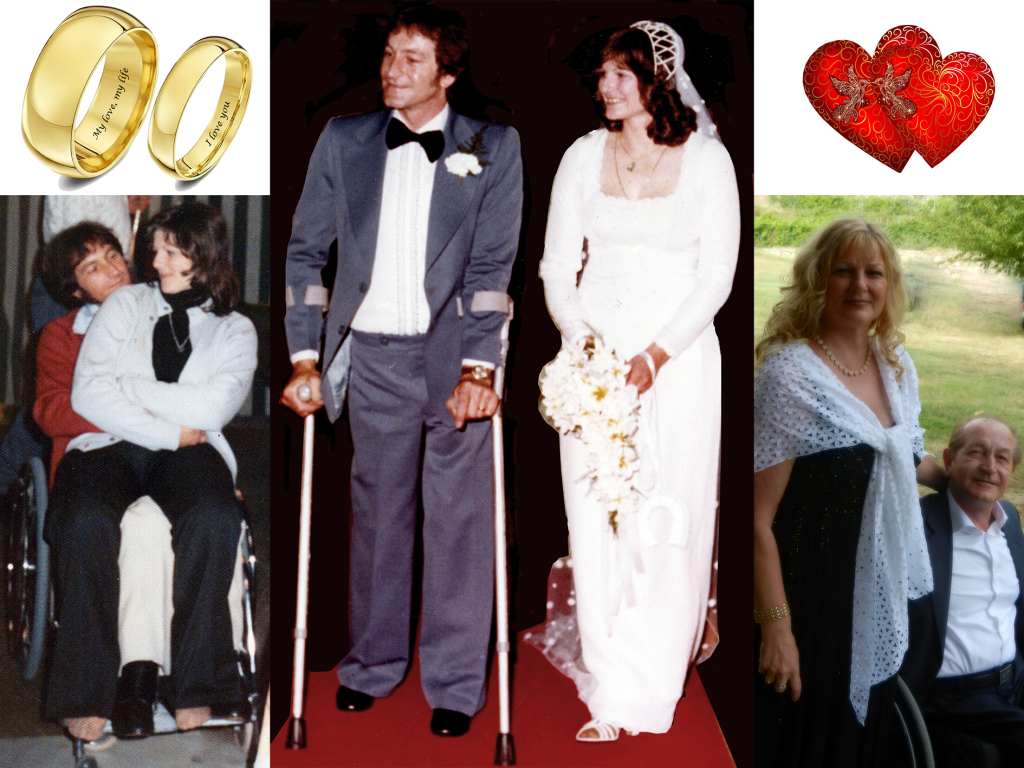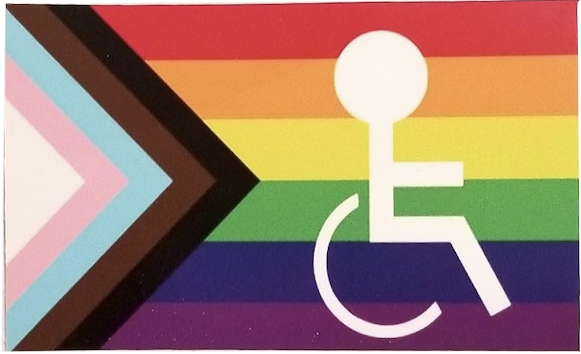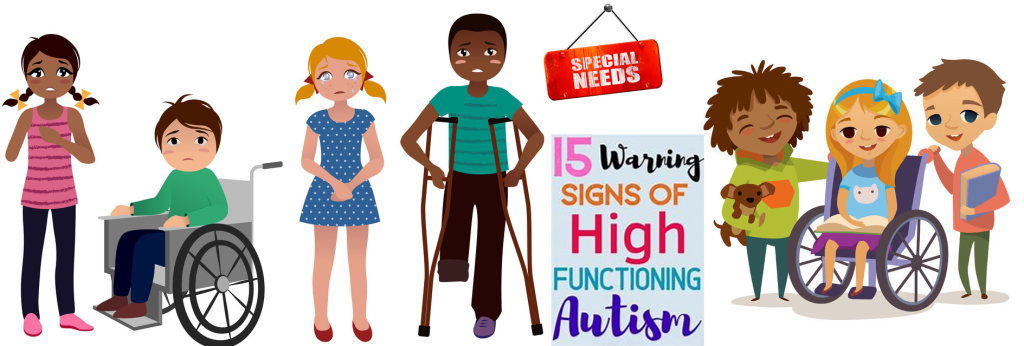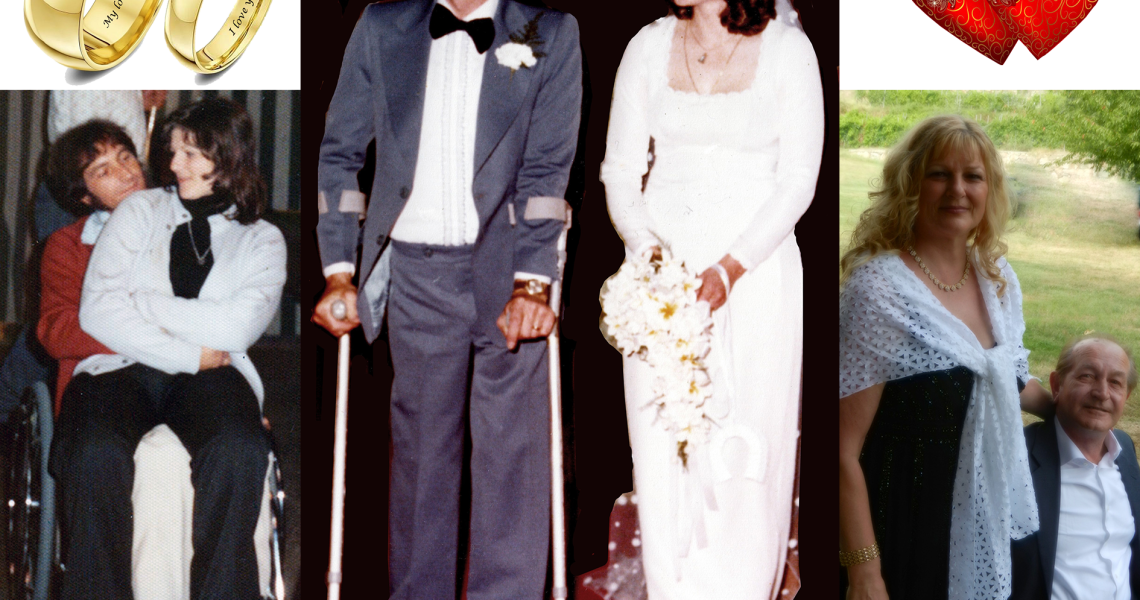‘He’ is my husband; I am not his ‘carer’ so treat me like you treat everyone else’s wife

Diversity is a catch cry, all dressed up with nowhere to go in the discussion of disability embracement.
Many people are overly concerned with cultural and linguistical diversity at the expense of rigorous discussion from free thinking and real lived experiences of people who have consistently and continually been included in somethings and excluded from other things.
The phrase “politically correct” is used to berate people who are not afraid of open minds that radiate free thinking. After assailment, these people are cancelled. In the society they live in they become invisible, ignored, and alienated voices in the wilderness.
Excluded, alone, time to turn around and go home.
‘Participant D’ was a contributor to a disability inclusion study conducted in South Africa some 20 or so years ago. Of the four male participants interviewed for the study two had a motor or physical disability (quadriplegia and paraplegia), one had a visual disability, and one had a hearing disability. All revealed strong desires to participate in society. All were well versed in disability legislation and experienced feelings of resentment that those responsible lacked answerabilities concerning their duties towards implementing disability policy.
Question 10 on the interview schedule read. “Could you please describe an experience that you have had within the South African built environment? Could you please describe the incident in greater detail? How did it make you feel?”
The study quotes the following from ‘Participant D’ who was described as a 47-year-old male who for over two decades had lived as a paraplegic, white, middle-class, with postgraduate academic qualifications.
‘Participant D’ got the chance to take a weekend trip with his wife and friends on a renowned luxury train in South Africa. Having been assured that the train was accessible, he bought tickets, which although at a reduced price were still very expensive at approximately ZAR 10,000 (US$650 or €590). After enjoying a five-star treatment with champagne with his friends before embarking, it became apparent that the train was in fact not accessible for independent wheelchair users like himself. He tried in vain to use the train’s wheelchair (after getting out of his own custom-built one) and manoeuvre around the trains ‘accessible’ cabin set aside for guests who use wheelchairs. The challenges he encountered included being asked by the train staff to walk a few steps to board the train, use the train’s old inadequate wheelchair, stay in an inaccessible cabin, and use the train’s butler every time he wanted to get in and out of bed or use the bathroom. Eventually, he had to return home alone, saying goodbye to his tearful wife, and upset friends whom he persuaded to carry on with the journey so as not to miss the once-in-a-lifetime opportunity.
Other direct quotes from ‘Participant D’ included:
“So, we booked … and paid. We were really excited about the trip; the train is famous all around the world and having the whole train full of our friends promised to be a once in a lifetime experience”.
“So … against my wife’s advice, I shuffle (along my bottom) onto the train and lift myself into their narrow wheelchair. OK, at least I am on now…”.
“So, I reverse down the corridor, and shuffle [along my bottom] off the train, back into my wheelchair … The crowd has reformed, and I squirm in their collective sympathetic looks and comments. They all mean well, but I just need to get out of here. At this stage there are tears rolling down my wife’s face … I am feeling [terrible] for again being the reason for spoiling another nice weekend”.
“My wife wants to get off with me, through her tears. I convince her to stay on, enjoy the weekend with our friends”.
“I shall write (the luxury train company) a long letter, explaining where they went wrong, and how they need my company’s services to ensure that they comply with their responsibilities as a South African company”.
Echoes a familiar occurrence 20+ years later with Tony and my personal experience with Princess Cruises.
Social exclusion generates painful experiences, such as being embarrassed at losing dignity, feeling ashamed, enduring unwanted attention, receiving a loud and clear message that you do not belong, these have short-term and long-term injurious consequences on the well-being of affected individuals.
‘Participant D’ via his luxury train experience, was affected to the core of his being, feeling rejected, inferior, inadequate. He questioned his identity within his society. So did his wife question hers!
‘inclusion’ is a seen as ‘we are taking positive action’ buzzword without any understanding of the simple truth that exclusion is a very real daily experience for many who are celebrated as included because they are different or special. Let us raise a flag to recognise all the ‘disabled’ people who live in our community. No one can then claim we did not include this group of people in our celebration of societal diversity!
A workplace is not an ‘inclusive’ workplace just because a worker there has a disability.
An educational setting is not an ‘inclusive’ educational setting just because it has a number of ‘disabled’ by label people on campus as students.
A professional event is not ‘inclusive’ just because there are disabled parking spaces reserved and the building has a lift and wheelchair users are placed up the back, over the side, next to the toilets or wind tunnel doors with a blocked view of the stage.
Community groups, sporting clubs, group holidays, are not ‘inclusive’ just because disabled types are somewhere there.

Have a look at the images on the inclusive flags, the inclusive posters, the inclusive literature. The messaging speaks loud and clear – these disabled by society people are not normal they are different and need special labels, special services, their needs are to be specially researched, special tests need to be developed to identify their special needs. These poor marginalised and excluded people need special caregivers and special advocates and special community supports and special tolerance.
Their requirement of living a normal life of their own making is denied accommodating perceived conflict of interests in the job creating support services industry.
‘Promoting Inclusion’ today means producing some kind of poster or media with an academically agreed message that places a neon light around the charitable concept of society having all the power and control to take an individual’s sad disposition and turn it into a societal service industry victory.
It’s all about the message…
The assumption is made that disabled by society individuals need something different than the abled by society need because they are ‘special’, and society can accommodate their special need.

Restrictions and limitations do originate from the human body. The environment is rarely the only issue. If someone who cannot stand up or walk is invited to a party to be held on the second floor of a building and there is no lift the fact exists that the wheelchair user cannot easily attend the party without assistance. The personal choice becomes finding a way to get up the two flights of stairs or to decide not to attend.
This access barrier may not have been seen and therefore considered by the inclusive, yet oblivious, invitee. In this circumstance it is not someone else’s failing that the building that needed to be accessible, on that one particular night to attend the party, was built without a lift. Wheelchairs and wheelchair users come in different shapes and sizes. Even if a lift was available to reach the second floor is the lift door wide enough to carry the wheelchair, does the party venue have a toilet that is manageable, is the entry and other doors wide enough, is there space for a turning circle?
For one to say the person who cannot stand up and walk was excluded because society has disabled them from attending is a total falsehood that needs to be exposed and challenged as a piranha of inclusion.
Let us discuss how a bound to wheelchair user decides to book wheelchair accommodation at one of many large well established companies providing a range of options from luxurious to budget.
More often than not on arrival at the venue access issues are the norm. While the front door of the recently built modern venue may be automatic opening the door from the carpark into the same building is not.
In the room there are lips on door frames and no access to the balcony for the wheelchair user in the wheelchair user accommodation.
It’s a joke Joyce. The law says it is a human right the wheelchair user accommodation must be accessible. The wheelchair user pays the going standard room rate. But the fact is these accommodations, in may instances, are not set up for wheelchair bound people rather they are set up for people who are not wheelchair bound, that is for people who can stand up and take steps. The focus in not on what the room is supposed to be available and be set up for. Wheelchair bound users.
Same as car parking. Wheelchair user car parks were designed for people who use wheelchairs. Not for people who are blind, or deaf, or mentally ill, but for people who use wheelchairs that is what they were designed for and introduced into society for.
Disabled by society people all lumped in together.
So, anyone who is classified as disabled by society gets to use a specifically designed and introduced into society aid for people who use wheelchairs. The ignorant do-gooders in their protection show they do not know how things really are. They think they are doing the right thing, but they do not really have a clue. In the meantime, the wheelchair user is inconvenienced and has to find a car space somewhere else because a non-wheelchair user is using the space brought into society to make life easier for them.
Parents on finding out their child has Cerebral Palsy start a journey that they never planned to be on. Cerebral Palsy is not a disability, the ‘disabled by society’ label is. Cerebral palsy is a physical condition that affects movement and posture. Every child with cerebral palsy has a different combination of symptoms and the severity of cerebral palsy symptoms fluctuates from child to child.
In the real world, disenfranchised from society at large, families become their own separate disabled by society communities. They learn that their needs are too different for mainstream living. Their life is understood to be something to be pitied with charitable community support the answer. It is true that being charitable makes some people in society feel saintly. One can even win an award or gain employer and state and national and media recognition.
The ‘disabled by society’ people do not meet society’s very narrow definition of what living a normal life is. Most people living with permanent and limiting impairment do not remember most of overcoming their daily challenges as they do not know anything different. For them it is normal, and the fact things are harder for them than the general population does not get in their way.
Without me, there is no we.
‘He’ is my husband; I am not his ‘carer’ so treat me like you treat everyone else’s wife.
‘She’ is my wife. We expect to sleep together, sit together, eat together, dance together, travel and go on excursions together.
Blissfully one love unit, one family unit… where do these units fit into the promoting inclusion banter?
Simple answer is they do not.
The focus is on ‘societal disability’ and not the individual being a human being living their normal life.
Sure, governments have provided companion cards for the carer, respite time for the carer, even warm and fuzzy legislation like the commonwealth Carer Recognition Act 2010. The professional care relationship is visible and ranked highly by society.
Of course, Carer Recognition Act does not create legally enforceable obligations, nor does it recognise the role of a spousal relationship. You know… that informal care worker.
A carer is considered to provide a valuable social and economic contribution to society which the law states should be recognised and supported. To avoid doubt, the law stipulates an individual is not a carer merely because they are the spouse, de facto partner, parent, child or other relative of an individual, or is the guardian of an individual.
The personal identity of a husband and a wife, a mother, and a father, is sent to the back burner seen as a low priority of little importance.
The spousal relationship is invisible to society as a person with a disability is not thought to be able to care for themselves and live in a normal loving functional family unit of their own creation. The human element is overlooked because the disability is all that is seen and talked about. The ‘I’m a victim of society’ barrier was created by academics so an individual must then identify with the societal label if they want to be accepted within the rules of engagement for society to treat them in a tokenistic flavour of the day way.
The identified disability label represents the job creation or funding scheme most advocates are looking for.
Family relationships for people with a disability are not seen to provide a valuable social and economic contribution to society. Disability is always associated with society burden with a responsibility for society to fix the event causing trauma through rules and funding schemes and other people deciding what is available for society to able body someone.
Disabled people are not considered by society to be capable of living in a passionate love relationship being excited sexually and desiring sexual gratification. Instead, they are subjected to connotations that suggest they are incapable of normal sexual relations in love affairs of the heart. Or that they cannot have children or if they do have children they are incapable of looking after them. Or that they will pass on the disability gene to their children in spite of the fact the disability may have no genetical make up.
People with disability are trained by society to deny normal privilege so as to not to be seen to be making a fuss or creating unnecessary work for others. The captain of the ship is then justified to say ‘if you can’t walk you can’t take the tender boat to shore. My decision is based on your and my staff’s health and safety. Just accept that fact and be quiet like a good little person while everyone who can walk can enjoy themselves with their spouse, family, and friends’.
Human rights laws already exists that should stop this type of disability discrimination, but the legal players do not take it seriously and the judicial system is set up to ensure any claim fails to get traction for transformational change to occur. The cost and the bother to the system is not seen as identification of a person’s experience being a light beacon for the world to see the truth, the revelation of the truth, whole truth, and nothing but the truth. Instead, denial, cost burden excuses are accepted and allowed because that is how the law has been set up.
‘Ableism’ is a fairy tale concept born out to disguise the real truth in why the social model of disability will fail to change the daily life of the impaired. Living a normal life is different for every individual on the planet because everyone’s normal is different. Life is not static or predictable, tomorrow is merely an opportunity to provide a potential planned agenda we set. Living each day is not something that can be set in stone to pass a yes test or tick box.
Part of the solution suggested by the ‘ableism’ inventors and gurus is a need to recognise and change so called ‘ableist’ language that has been around for generations. Why? Just in case someone in the world takes offense to a word or a sentence and as a result creates for themselves a traumatic episode. A change in the language is said to lessen the trauma in this world. Diverse-Ability is not better language than Dis-Ability. Diversity is no substitute for run-of-the-mill lifestyle.
A change in language alone will not change attitude or behaviour.
If a person has red hair and is called a ‘carrot top’ or Annie, or Bluey, or Ginga, or Cherry, or Ranga, it is not the word that causes a smile or offends it is the individual’s belief about the use of the word and who is voicing that word that dictates their behavioural response in any one particular situation.
Ableism is a new academic and political ‘buzzword’ and has nothing to do with disabled people being de-valued by society. Ableism has been created to teach people an academic model of disability that in many ways will destroy a lot of progress that has been made over the years. A ‘feel good’ example is blind people and intellectually impaired people automatically qualifying for ‘disabled’ car parking spots which were once reserved for the people who they are designed for and needed by – the mobility impaired.
